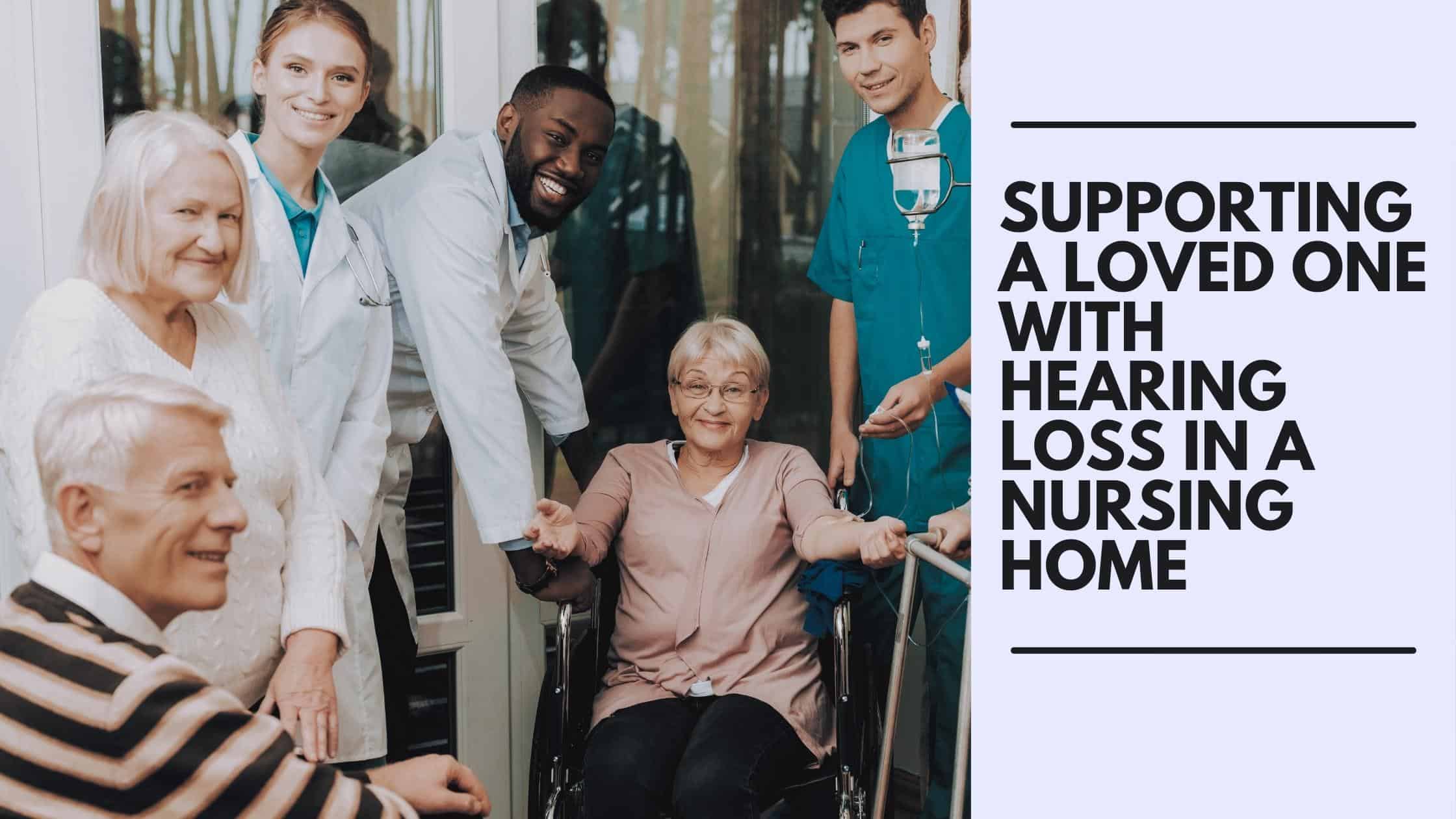
It can be difficult to care for your loved ones in a nursing home, especially during this extended COVID-19 pandemic. Communication is often secondhand by administration and staff, so it’s hard to know the best ways to support a loved one. It’s important to note that hearing loss is the third most common medical condition in the US affecting 1 out of 3 people over the age of 65 and half of those older than 75. If your loved one is blessed to live to 100 years old, the chance they will have hearing loss is 100 percent! Of the approximate 1.7 million people who live in nursing homes in the US, it is safe to assume that the majority have some degree of hearing loss. With this understanding, you must be prepared and create a plan for communication with your loved one before it turns into a larger issue.
Age-Related Hearing Loss
Presbycusis, or age-related hearing loss, occurs from changes to the ears from a lifetime of listening and aging. It is sensorineural – a permanent form of hearing loss caused by the destruction or damage to cells of the inner ear, responsible for transmitting sound information to the brain. When your loved one has presbycusis they may be missing parts of words or words in sentences. Regardless, it forces them to work a little harder to fill in the blanks in conversation. This is why so many seniors become withdrawn or avoid social interaction. It can be so exhausting to hear with untreated hearing loss that it is more tempting to avoid social interaction altogether. We know for seniors that social isolation can cause cognitive decline and decrease life expectancy significantly.
Diagnosing Hearing Loss
Hearing loss often develops over many years. It can often go undiagnosed due to its slow and subtle development. However, even undiagnosed, it continues to cause listening fatigue and social withdrawal in seniors. The key to the prevention of the dangerous side effects of hearing loss is regular screenings. Untreated hearing loss has been linked to increased cases of stress, anxiety, and depression. The earlier it can be caught the sooner it can be treated. Hearing specialists recommend that people begin annual hearing tests from the time they are 50 years old and on.
Treating Hearing Loss
While presbycusis is a permanent condition, it can be treated with hearing aids. Hearing aids amplify the sounds which an individual struggles with so your loved one can hear clearly. Investing in hearing aids for the seniors in your life gives them a chance to keep up with old relationships and begin new ones. It allows them to stay active and explore new hobbies. Hearing support for the senior dear to you is one of the greatest gifts you can give towards their quality of life.
Make Sure Hearing Aids are Being Used
To get the most out of hearing aids, it is recommended to wear them from the time you wake up, till the time you go to sleep, only to be removed for bathing or naps. Hearing aids are not going to help you if you don’t wear them. It can be hard for some to get used to hearing aids, but once they do, they can enjoy the benefits of enhanced hearing.
Talk to the staff at your nursing home to make sure they know your loved one uses hearing aids and to help them put them in daily and remove them. You may also find it effective to provide your loved one with an attachment that clips the hearing aid to a cord, preventing loss or damage to hearing aids if they fall out. The staff at the nursing home may be able to set up a system for overnight storage to ensure that hearing aids are protected. In some cases, they may need to be recharged or the batteries will need to be periodically changed. If you can’t visit yourself, make sure someone is checking on your loved one’s hearing health.
Hearing Evaluations
If someone you love is in a nursing home, the chance of hearing loss is too high not to have their hearing evaluated. Set up an appointment today. We can help you find the best solution for your loved one’s hearing needs to improve their quality of life for years to come.
